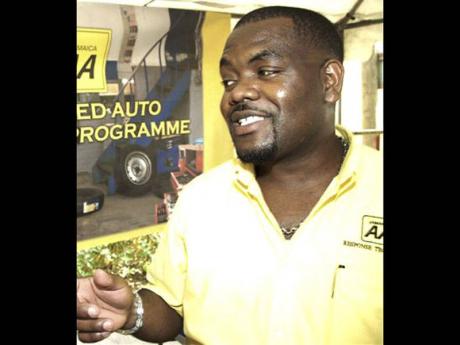Keep calm, slow down - Response critical in tailgating situations
Not many people may realise it, but tailgating is the leading cause of crashes in Jamaica.
This finding was made by the Mona GeoInformatics Institute from its map of 72,000 road crashes between 2000 and 2010. It indicated that tailgating accounted for 20 per cent of all collisions, followed by drivers who fail to stay in their lanes, who are responsible for 10 per cent of crashes.
Duane Ellis, general manager of the Jamaica Automobile Association (JAA), noted that motorists should always try to maintain a minimum following distance of four seconds behind another vehicle to allow them room to take action, if necessary, to avoid a collision. "And your following distance should increase as your speed increases," he said.
Ellis pointed out that, if one is being tailgated, "there are actions good drivers can take to manage such situations". The first thing is to remain calm. "Losing your cool could result in the loss of control of your vehicle," he advised. "Check your mirrors frequently to monitor the vehicles behind you and focus on the situation so that you can react appropriately if it becomes necessary."
Preparing yourself mentally for such situations can also help, Ellis said. "Avoid the urge to respond aggressively, and concentrate on diffusing the situation rather than aggravating it. Some aggressive drivers may hurl insults or display unkind and adversarial gestures, but you are better off de-escalating any tension," he said.
It is critical to reduce your speed gradually to allow the tailgater to determine when it is safe to overtake. "Often a tailgater just wants to go faster, so slowing down or pulling over, if necessary, can assist them," Ellis said.
However, he warns that if one is still being tailgated after offering the driver of the car behind several opportunities to overtake, the situation should be treated with added caution, especially when driving at night or along lonely or poorly lit roadways. "Assess the risk involved, yield and allow the tailgater to pass. If the vehicle following you does not overtake, be vigilant and stop only in well-lit, built-up areas where there are many other people around, or drive to the nearest police station," he advised.
"Being tailgated is a difficult situation, but you should make the best of it by exercising self-control and using smart strategies to reduce your risks, as aggression leads to road rage."
- Article provided by the JAA.


